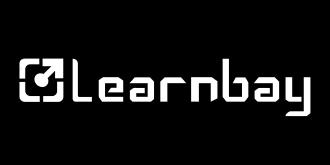
According to Mordor Intelligence reports, the global Agentic AI market is expected to grow 41.48% by 2030. As digital innovation continues to grow, Agentic AI creates a new history. Unlike traditional AI systems, Agentic AI has revolutionized the tech industry with future-intelligent systems. The 21st Century’s splendid creation in the form of Agentic AI sets the basis for autonomous work practices and decision-making. Yet, the latest buzz spins around ‘What is Agentic AI and how does it work in real-world settings?’ This blog guides you through the Agentic AI frameworks, uses, key risks, and future trends. Also, career fanatics can follow the guide to redefine their careers via an Agentic AI course.
Let’s dive into a thoroughly curated Agentic AI roadmap, from a basic preface to unleashing future trends.
What is Agentic AI? – A Dive Into Future Intelligent Systems
Agentic AI is the latest creation of artificial intelligence, setting new standards for future intelligent systems. Unlike classic AI models, Agentic AI creates a new parameter for autonomous working. Its ability to automate workflows, perform complex tasks, and decide on crucial matters exhibits a promising future. Indeed, Agentic AI automates typical work practices and handles cases even without human presence.
The Agentic AI architecture reflects dynamic systems that can think, operate, and decide automatically. The initial complexity of ‘how to build Agentic AI systems’ ended with its flexibly designed interface. Agentic AI works without human experts as it analyzes the environment, adapts the required behavior, and operates autonomously. Hence, firms adopt Agentic AI to tackle complex tasks and increase profits.
For example, unlike classic ChatGPT responses, Agentic AI records your previous prompts and interactions. Next, it breaks down core tasks into simple steps, crafts additional ways to do things, and responds to specific cases based on external factors.
Whether you’re a web developer or business leader, Agentic AI can help you customize your offerings and ease your tasks. The most discussed Agentic AI use cases direct you to autonomous work settings with custom-fit solutions. Also, it's advised that career aspirants eager to build a thriving AI career must master Agentic AI and land exciting jobs.
Divergent Review of Agentic AI in the Autonomous Age
Agentic AI speaks of a new AI-driven wave that has transformed several sectors and redefined work cultures. The new model has the autonomy to take self-reliant actions, analyze various cases, and decide. It boasts of more precise solutions than classic AI models. Yet, Agentic AI has mixed responses from different users.
Agentic AI architecture entails a seamless operating space with no human intervention. This model is efficient in automating tasks and reaping alluring gains. Yet, it also creates a space for disorderly behavior. Agentic AI is a self-reliant model that can be a hassle due to the loss of control over the tasks.
The Agentic AI roadmap shows its timely evolution, giving tough competition to Generative AI and Predictive AI. All three are vowing tech-driven creations that pave the way for seamless functions. Yet, they operate differently from each other, creating a sense of insightful intelligent systems.
Agentic AI vs. Generative AI vs. Predictive AI
Agentic AI is well-known for its autonomous functions with no human interventions. On the other hand, Gen AI relies on training datasets to create new text, image, audio, or video content aligned with user needs. Conversely, the predictive AI uses past data trends and facts to forecast future actions and provide useful tips.
Agentic AI vs. Generative AI reflects the autonomy disparities that make them work differently. Agentic AI itself works as an autonomous assistant to tackle a project. Conversely, Gen AI applies ChatGPT or DALL-E to create user content for various goals.
Agentic AI vs. Predictive AI reflects the crucial disparity in decisiveness. Agentic AI has the autonomy to manage workflows, verify the market trends, and decide further actions. On the other hand, predictive AI is limited to making forecasts and relies on human users to make decisions.
Also, Agentic AI frameworks can be adapted to real-time work settings, unlike GenAI models. GenAI has a limited ability to alter its functionalities, making it less useful for users. On the contrary, predictive AI lacks these features, with no goal achievement or decision-making.
Gradually, Agentic AI has become more promising than GenAI or predictive AI, creating a sense of urgency for upskilling. Hence, aspirants prefer to join an industry-paced Agentic AI course to master in-demand tools and thrive globally.
As the Agentic AI trend continues to grow, learning top-trending frameworks has become crucial for aspiring candidates. Let’s explore them.
Top Agentic AI Frameworks to Unfold in 2025
We are in 2025, and Agentic AI has become the new trendsetter. Unlike ‘What is Agentic AI?’, users now debate on top-notch Agentic AI frameworks. Many web developers, content creators, and business owners rely on Agentic AI to excel in their fields. The corporate users are more focused on automating tasks and tackling complex cases. Hence, experts tend to master key frameworks to handle the intricacies.
AutoGen (Microsoft)
Microsoft presents an open-source Agentic AI framework termed ‘AutoGen’. It has changed the way intelligent systems are created. It's a flexible interface, where multiple AI agents can work on a project with proven solutions.
Core features:
• Scalable Agentic AI architecture
• Hassle-free support agents via APIs
• Able to prioritize tasks and provide logic for them
LangGraph
Agentic AI is introduced to LangGraph, a well-known framework for managing stateful workflows. It creates a graph-based architecture, including various steps with logical flows, and manages interdependencies.
Core features:
• A platform to have a graph-based workflow handling
• Applies advanced logic to tackle complex systems
• Flexible API integration
LangChain
Agentic AI is known for its flexible work settings, offering enticing benefits for users. LangChain is one of the intriguing AI frameworks driving a new sense of workflow automation. It helps users to give prompts and required essentials into the pipelines, paving the way for hassle-free LLM development.
Core features:
• Autonomous workflow handling
• Built-in memory features for stateful uses
• Works flexibly with LLMs and APIs
Crew AI
Crew AI is a collaborative Agentic AI platform that gathers multiple agents to complete a project. AI agents find the framework flexible to interact with and work on a specific task. In short, it creates a sense of teamwork and excellent problem-solving skills.
Core features:
• Teamwork and group tasks
• Automated task planning functions
• Seamless task delegation
• Custom-fit modules
Semantic Kernel (Microsoft)
Microsoft presents a semantic kernel framework that helps users to have a clear insight into the real context. It was built to help developers deliver real-time designs aligned with changing contexts.
Core features:
• Aware of real-time contexts
• In-depth knowledge of users
• Pre-built systems to seamlessly integrate with business tools
Diving into Agentic AI Use Cases in 2025
Agentic AI use cases reflect its wider applications across diverse sectors. Let’s explore them.
• Agentic AI in automating workflows: Work automation is viable with Agentic AI, where multiple agents can tackle a project or task with vital changes.
• Agentic AI in energy management: Agentic AI helps distribute energy channels and balance demand and supply levels in time- and cost-saving ways.
• Agentic AI in healthcare: Agentic AI applications in medical science help plan treatment options, arrange patient follow-ups, and connect with other departments.
• Agentic AI as personal assistants: Agentic AI works as agents, planning tasks, writing emails, booking trips, and sending reminders.
• Agentic AI in logistics: Automated agents help firms plan their supply channels, decide routes, and forecast demands.
Ethical Issues with Agentic AI Applications
Indeed, Agentic AI has revamped modern-day businesses, paving the way for an autonomous work culture. The evergreen concern with Agentic AI systems revolves around their misuse, creating ethical concerns for users. The endless use of Agentic AI frameworks calls for a revision of moral principles and practices. It has questioned its usage and decision-making powers. Hence, users are advised to upgrade their skills via an Agentic AI course and refine their actions for better results.
Wrapping Up!!
Agentic AI has become the latest version of AI models, navigating the future of modern businesses. It embraces cutting-edge methods, proactively tackles industry intricacies, and thrives. Hence, in-depth learning of Agentic AI frameworks and their uses has become vital for users.
The Agentic AI roadmap stresses upskilling for overall learning and career progress. Enrolling in a GenAI Certification for Managers and Tech Leaders Course is worth investing in. Its E&ICT Academy, IIT Guwahati certifications empower you to excel in your field with Agentic AI skills.
Frequently Asked Questions (FAQs)
1. What is Agentic AI, and how is it separate from Gen AI?
Agentic AI is not limited to forging outputs—it takes independent actions aligned with core goals. Conversely, Gen AI aims to create content like text, images, or code.
2. What is the difference between Generative AI and Predictive AI?
Gen AI uses data patterns and prompts to create new data, such as images or text. On the other hand, predictive AI uses past data trends to forecast future patterns.
3. Are there any real Agentic AI systems available?
Yes. AutoGPT and BabyAGI are early-level Agentic AI systems with flexible functionalities.
